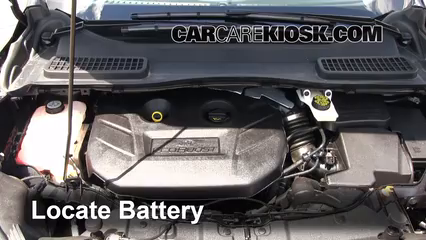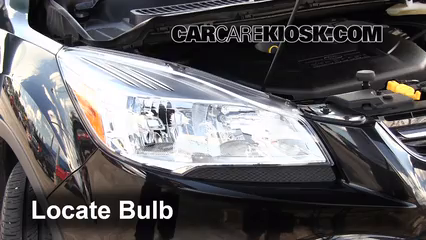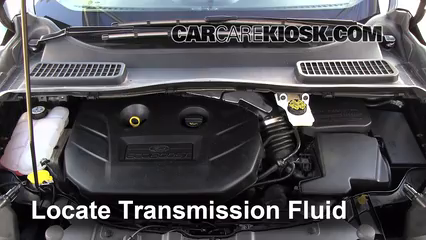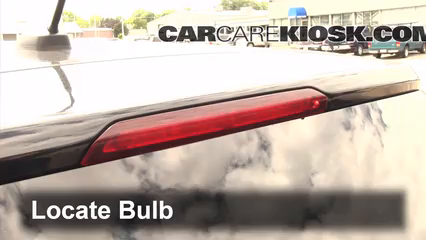How to Add Coolant: 2013 Ford Escape SEL 2.0L 4 Cyl. Turbo
Ford Escape Model Years - 2013, 2014, 2015, 2016, 2017, 2018, 2019
How to check and refill coolant in the 2013 Escape with step-by-step instruction to find the fill line on the reservoir
Hans Angermeier is an ASE certified Maintenance and Light Repair Technician and has produced over 100,000 videos showing drivers how to fix things on their cars. He has broad expertise on basic repair procedures covering the majority of cars on the road. Over the past 10 years, Hans has been focused on building CarCareKiosk, which is visited by millions of drivers each month.
- Lake Chevy helped make these videos
- Feedback
- Download Ford owners manuals
Adding engine coolant (also known as antifreeze) to your 2013 Ford Escape is pretty easy. Engine coolant / antifreeze circulates through your engine to keep it cool in the summer but won't freeze in the winter. Make sure to check your engine when it is cold for an accurate reading. The video above shows you where the coolant reservoir in your Escape is located and how to add coolant / antifreeze. Be sure to check your owners manual to determine the correct type of fluid to add - for Fords, it will typically be in a section titled Fluid Capacities in the back of your manual. Mix the coolant / antifreeze with distilled water so that you have a combination of 50% coolant and 50% water. Some coolants will come premixed-that is, you don't need to add any water. These coolants will typically say 50/50 or pre-mixed on the front of the coolant bottle.
Removing the coolant reservoir cap on a warm engine could cause the cap to fly off at a high rate of speed and fluid to spray out of the reservoir. Always wear safety goggles when working on your Escape. Promptly wipe up any spilled fluid as it is highly toxic. Animals love its sweet taste, so even a spilling a small amount on your garage floor can end up in the dog's stomach pretty quickly. If you notice an oily surface in your coolant, immediately have your mechanic inspect your Escape for head gasket leakage
- Advance Auto coupon for
20% off entire order: KIOSK20















 STOP AND SEAL LEAKS
STOP AND SEAL LEAKS EXTENDS A/C LIFE
EXTENDS A/C LIFE PROTECTS AGAINST A/C WEAR
PROTECTS AGAINST A/C WEAR